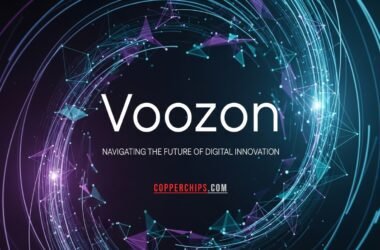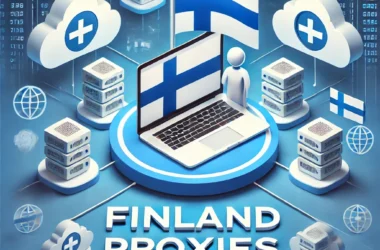The landscape of human resource management is evolving at an unprecedented pace. With technology at the helm, it is pivotal for businesses to embrace efficient human resource management to navigate these changes successfully. Technology is not merely a support tool; it’s a driving force that reshapes how companies operate and engage with employees. Consequently, companies are adopting innovative strategies to foster a more effective and resilient workforce, ensuring they remain competitive in an ever-changing market.
From technological advancements to evolving employee expectations, these trends are reshaping the HR domain. The shift is about adopting new tools and rethinking processes and roles within HR departments. Embracing efficiency in human resource management means creating a dynamic environment where employees are well-equipped to face challenges, and organizations can seamlessly integrate these novel approaches into their overarching strategies.
The Digital Transformation of HR
The digital wave has left its mark on human resources, catalyzing significant changes and improving operational efficiency and accuracy. For example, the integration of AI in recruitment processes has allowed for quicker and more precise candidate assessments. AI tools aren’t limited to resume scanning; they can perform nuanced evaluations, such as assessing the company’s cultural fit and potential career trajectories. Such advancements enhance hiring accuracy and reduce time spent on recruitment procedures.
Moreover, digital transformation enhances the power of people analytics, allowing HR departments to harness data for strategic decision-making. By leveraging analytics, HR can identify patterns and make informed predictions regarding workforce needs and dynamics. Enhancing people analytics has become indispensable in optimizing talent management and aligning HR strategies with overall business objectives, paving the way for a more agile and responsive workforce.
Personalized Employee Experiences
One size doesn’t fit all, especially in the workplace. As organizations recognize their employees’ diverse needs and preferences, personalizing the employee experience has become a prime focus for HR professionals. Companies can significantly enhance employee satisfaction and retention by implementing customized development plans and offering flexible work options. These strategies demonstrate an understanding of individual preferences, promoting a sense of value and belonging among employees.
Personalization in the workplace extends beyond mere flexibility. It involves understanding each employee’s career aspirations, learning styles, and personal circumstances. Companies that invest in this approach often see a more engaged workforce, as employees who feel valued and understood are more productive and more committed to their organizations. This commitment translates into reduced turnover rates and a stronger organizational culture.
Data-Driven HR Strategies
Data integration in human resource management has shifted from a peripheral support function to a central strategic enabler. By analyzing vast data sets, HR departments gain insights into workforce trends, identify potential areas for improvement, and develop targeted strategies. This transition is exemplified by predictive analytics, which can anticipate which job candidates are more likely to succeed in specific roles, allowing for more precise recruiting efforts.
Data-driven HR strategies are not limited to recruitment. They encompass a range of operational functions, from determining employee engagement levels to forecasting future workforce needs. This analytical approach enables businesses to fine-tune their strategies, ensuring optimal alignment between HR initiatives and broader business objectives. As data security and privacy remain paramount, organizations also invest in secure and ethical data management practices to protect employee information.
Remote Work and Its Impacts
The global shift towards remote work has presented challenges and opportunities for HR. As organizations adapt to this new normal, they are tasked with building policies that support an increasingly remote workforce while maintaining productivity and employee engagement. The transition has emphasized the need for robust digital collaboration tools, effective remote communication strategies, and a reimagined approach to team dynamics. This shift has also led to a reevaluation of work-life balance as employees navigate the blurred lines between professional and personal time. Companies that prioritize remote employee well-being by offering flexible schedules and supportive resources are more likely to maintain high engagement and morale levels. Furthermore, implementing comprehensive remote work policies has become a key focus, ensuring employees have the necessary support and resources to thrive in a remote setting.
Employee Wellness and Well-being
Employee well-being is gaining traction as a critical component of modern HR strategies. Organizations recognize that fostering a healthy work environment is crucial for sustaining productivity and morale. All-encompassing wellness initiatives focusing on physical and mental well-being, work-life harmony, and stress reduction are increasingly essential to employee benefits. Investing in employee well-being goes beyond providing health benefits; it involves creating a culture where well-being is prioritized. Wellness programs are important because they can reduce absenteeism and presenteeism, boost employee morale, and enhance overall productivity. Organizations with robust wellness initiatives often see a ripple effect extending to employee loyalty and satisfaction, reinforcing the organization’s commitment to holistic well-being.
Diversity, Equity, and Inclusion (DEI)
Diversity, equity, and inclusion (DEI) initiatives are no longer optional but essential aspects of comprehensive HR strategies. Organizations are proactively creating inclusive environments where diverse perspectives and backgrounds are valued. It includes establishing inclusive recruitment strategies, creating bias training initiatives, and cultivating an environment of open communication and respect. Companies prioritizing DEI initiatives enjoy various benefits, including enhanced creativity, problem-solving, and employee engagement. By fostering a space where multiple voices are acknowledged and appreciated, organizations can access a wider array of viewpoints and experiences. It strengthens the company’s culture and positions it as a thought leader in promoting social responsibility and equitable practices.
Sustainable Leadership Practices
Sustainable leadership is finding its way into HR strategies as organizations strive to incorporate corporate social responsibility into their core values. Developing leadership programs that align with sustainable business practices helps ensure that leaders are equipped to guide their organizations responsibly and ethically. These leadership practices emphasize long-term thinking, ethical decision-making, and commitment to environmental and social responsibility. By fostering sustainable leadership, organizations can build a pipeline of well-prepared leaders to navigate future challenges and drive meaningful change. It benefits the organizations and contributes positively to society, reinforcing a commitment to sustainable development and corporate accountability.
Conclusion and Future Outlook
The ever-changing realm of human resource management is constantly transforming, influenced by technological progress, and altering workforce demands. As these trends become the norm, HR professionals must remain agile, embracing innovations and adapting strategies. Integrating technology with human-centric approaches will be crucial in crafting engaging, inclusive, and future-ready workplaces, ensuring organizations thrive in an unpredictable world.
HR leaders will be pivotal in shaping organizational culture, policies, and practices. By balancing technological innovations with a focus on employee well-being and inclusivity, companies can create an environment where individuals flourish and businesses achieve sustainable success. Staying informed and adaptable will be key to navigating this new era of human resource management.








